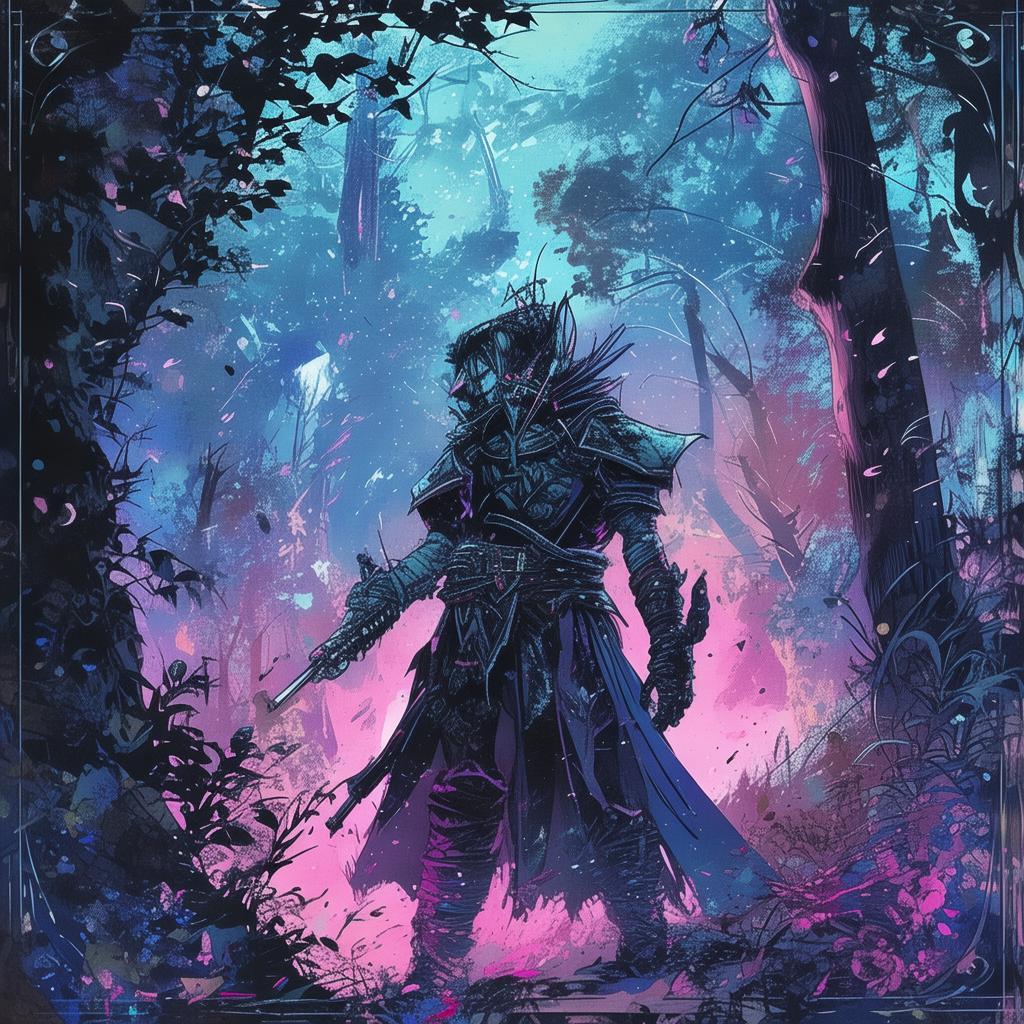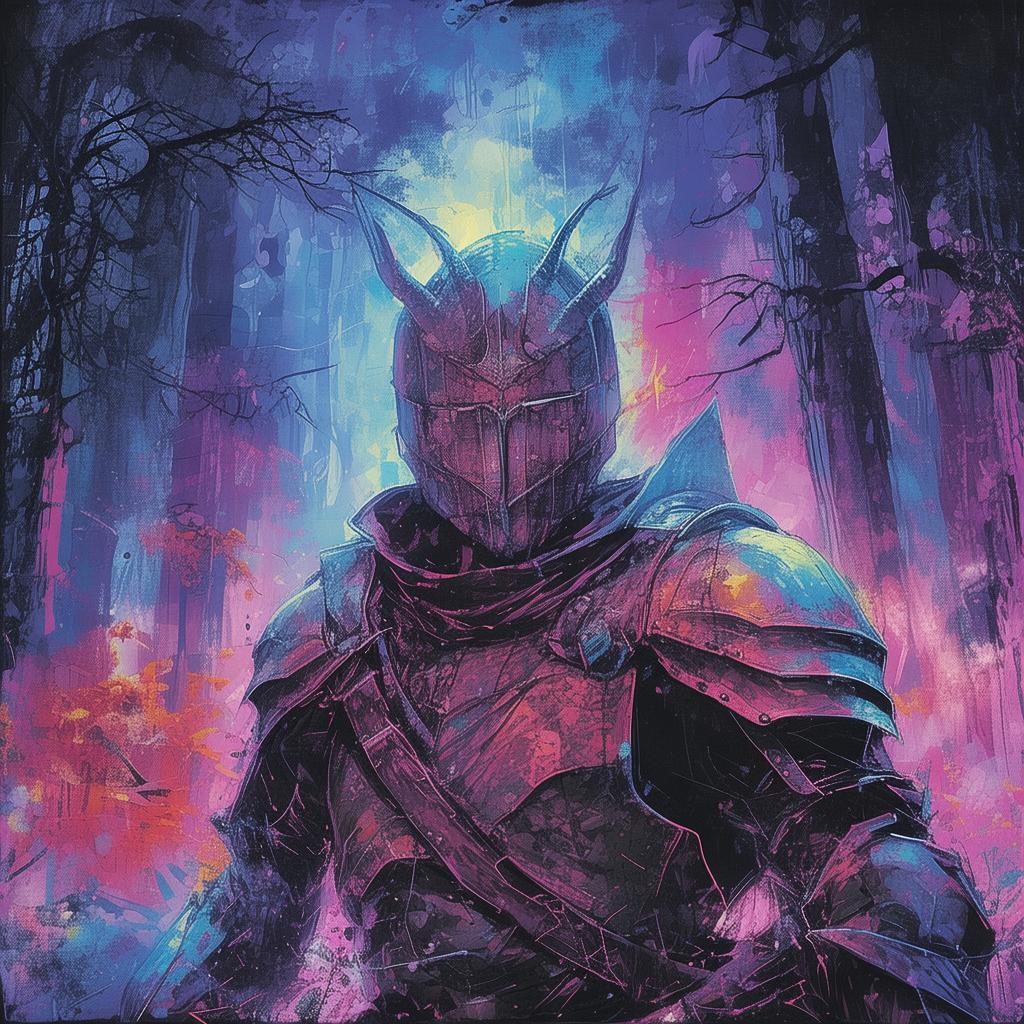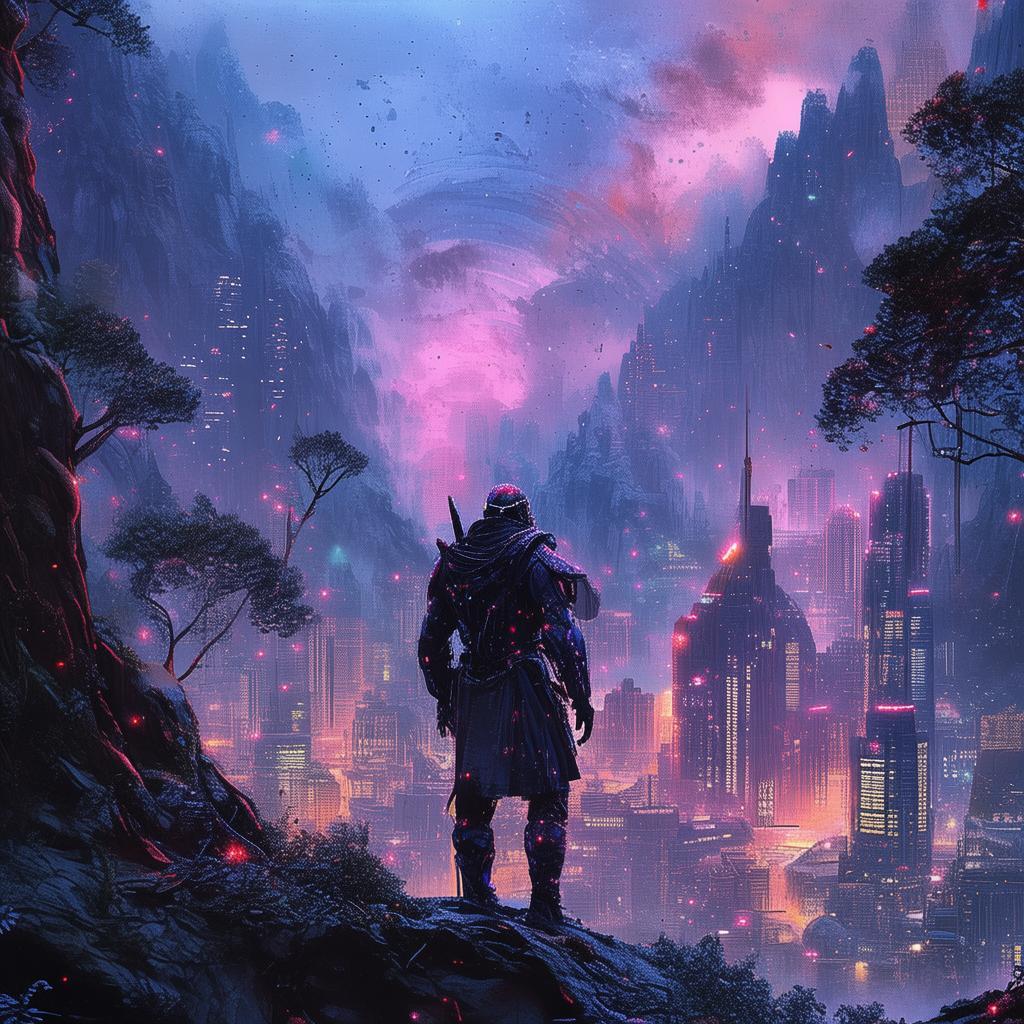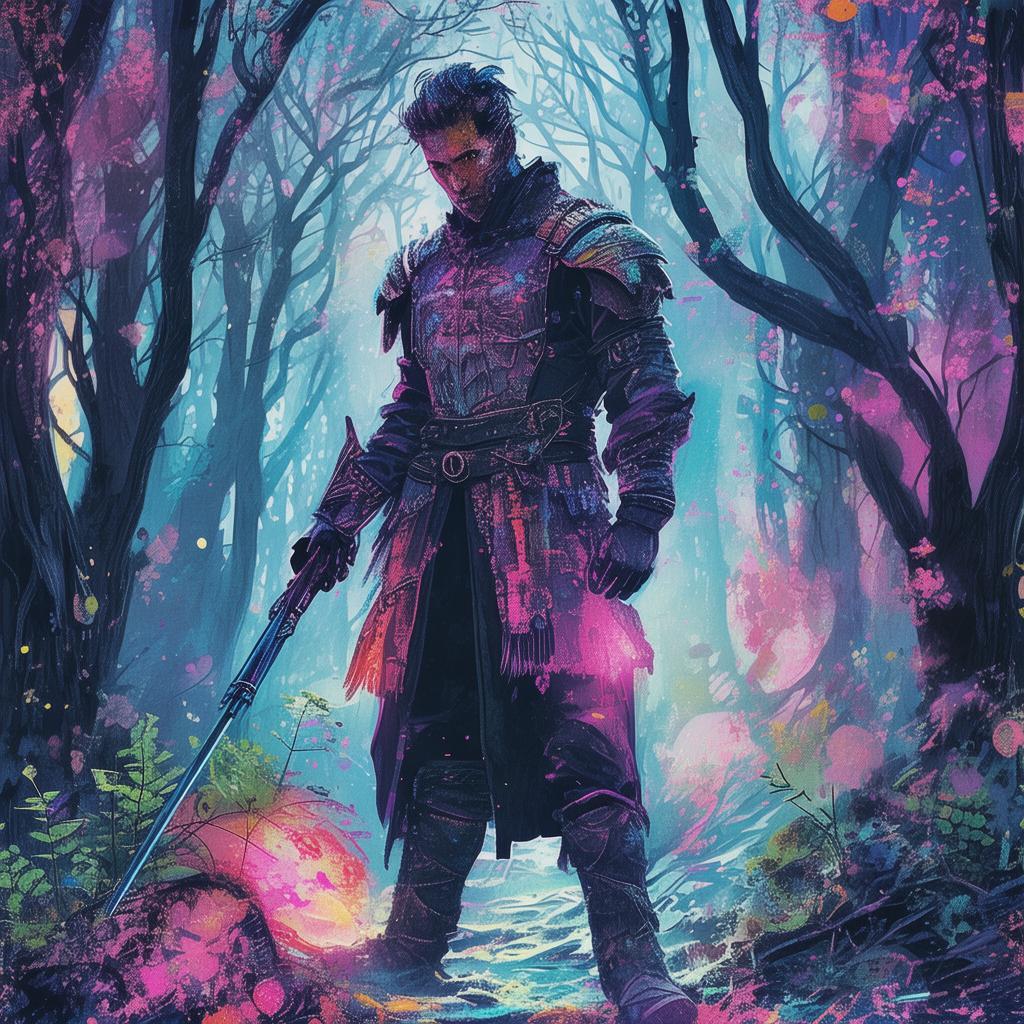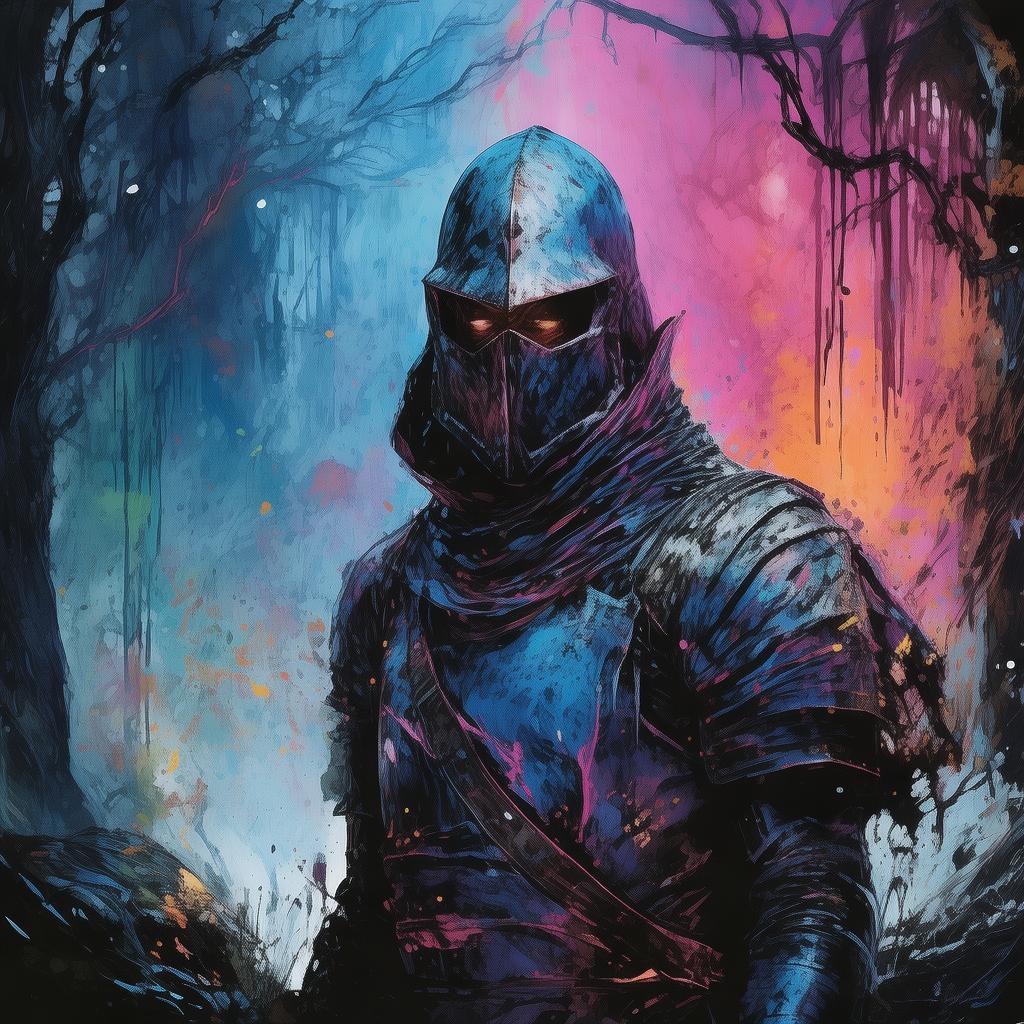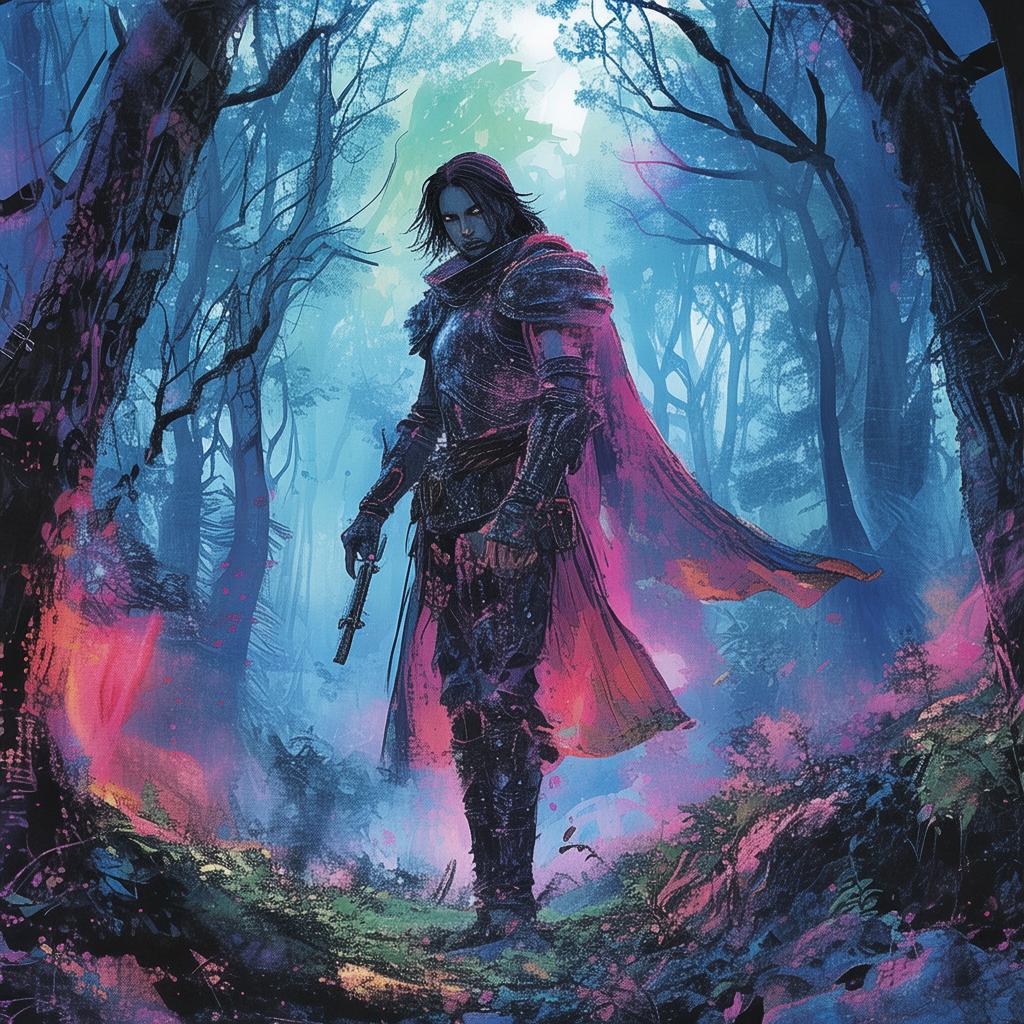The Echo of the Infinite: The Quest for the Heart of the Void
In the ancient, mist-shrouded mountains of the Eastern Realms, where the veil between the material and the ethereal world was thin, there lived a young man named Liang. He was a seeker, a wanderer, and a dreamer, with eyes that sparkled with the fire of curiosity and a heart that beat in rhythm with the ancient rhythms of the cosmos. His name was whispered among the mystics as a sign of the coming of a new era, a time when the esoteric truths of the past would be reborn.
Liang's journey began in the humble abode of the Timeless Mystic Houzhenzi, a sage who had transcended the bounds of time itself. The Houzhenzi, with a face etched with the wisdom of ages, had once been a warrior, a philosopher, and a king, all in one lifetime. Now, he was a beacon of light, a guide for those who sought the path of enlightenment.
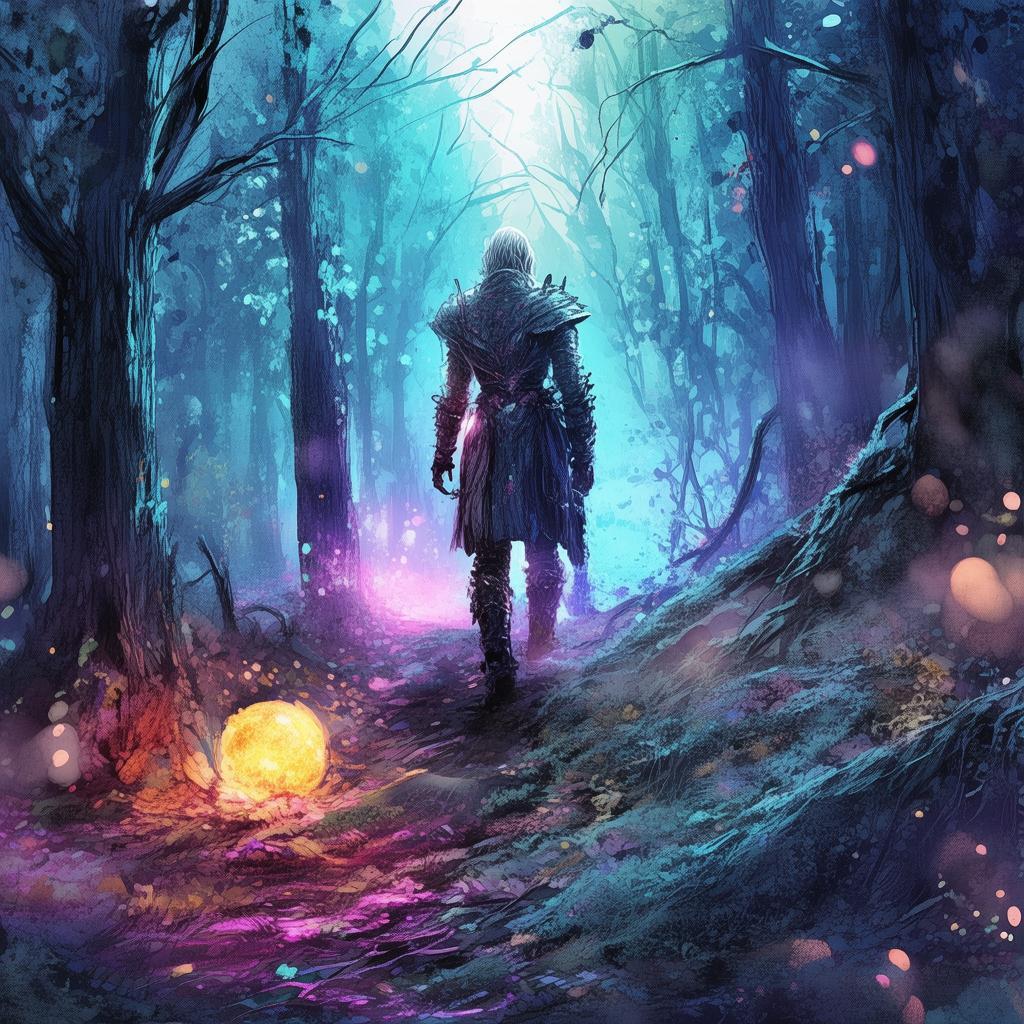
"The true path is not found in the mountains or the seas," the Houzhenzi had once told Liang, his voice like a gentle breeze that carried the scent of blooming lotus flowers. "It is found within you, in the heart of the void, where all things begin and end."
The Heart of the Void was a legendary artifact, said to be the very core of the universe, a place where the fabric of reality was woven from the threads of existence and non-existence. It was a place of infinite potential, a realm where the seeker could achieve ultimate enlightenment.
Liang had listened intently, his mind alight with the possibility of such a journey. He knew that the path to the Heart of the Void was fraught with peril, but he was undeterred. He was a man of courage and determination, ready to face whatever challenges lay ahead.
The first leg of his journey took him through the Labyrinth of Echoes, a maze of mirrors and illusions, where the seeker's mind was tested to its limits. Liang walked the narrow paths, his every step echoing with the voices of those who had failed to find their way. He saw the faces of the lost, their eyes filled with despair, and he knew that he must not let his own heart be swayed by doubt.
In the heart of the labyrinth, he found a chamber filled with mirrors, each reflecting a different aspect of his life. He saw his failures, his triumphs, his loves, and his losses. The mirrors were a representation of his ego, his sense of self, and he knew that he must let them go if he was to continue his journey.
With a deep breath, Liang stepped forward, and with each step, he felt the weight of his ego lift from his shoulders. The mirrors shattered, and he emerged into a new reality, unburdened and free.
The next trial was the River of Samsara, a river that flowed through the cycle of rebirth and death. Liang stood at the river's edge, his heart pounding with fear. He knew that if he were to cross the river, he would have to confront his own mortality and the fear of the unknown.
With a leap of faith, Liang stepped into the river. The water was cold and deep, and it pulled at him with an invisible force. He fought against the current, his mind racing with thoughts of his loved ones and the life he had left behind. But he did not falter.
The river took him through the depths of the cosmos, through the stars and the galaxies, and finally, to the shore of a new world. There, he met a wise old woman who told him, "The Heart of the Void is not a place, but a state of being. It is the place where you find peace in the midst of chaos, where you become one with the universe."
Liang understood then that his journey was not about finding a physical artifact, but about finding his own inner peace. He returned to the world, a changed man, his heart filled with a newfound sense of calm and clarity.
The Timeless Mystic Houzhenzi, who had been watching his journey from afar, smiled. "You have found the Heart of the Void within you, Liang. Now, go forth and share the wisdom you have gained."
And so, Liang walked the world, a teacher and a guide, sharing the esoteric truths he had learned. His story became a legend, a tale of the quest for the Heart of the Void, a quest that showed that the true path to enlightenment lies not in the external world, but within the depths of the human soul.
In the end, Liang's journey was not about reaching a destination, but about the journey itself. It was a testament to the human spirit, a reminder that the quest for enlightenment is a journey that never ends, a journey that takes us to the very heart of who we are.
✨ Original Statement ✨
All articles published on this website (including but not limited to text, images, videos, and other content) are original or authorized for reposting and are protected by relevant laws. Without the explicit written permission of this website, no individual or organization may copy, modify, repost, or use the content for commercial purposes.
If you need to quote or cooperate, please contact this site for authorization. We reserve the right to pursue legal responsibility for any unauthorized use.
Hereby declared.
